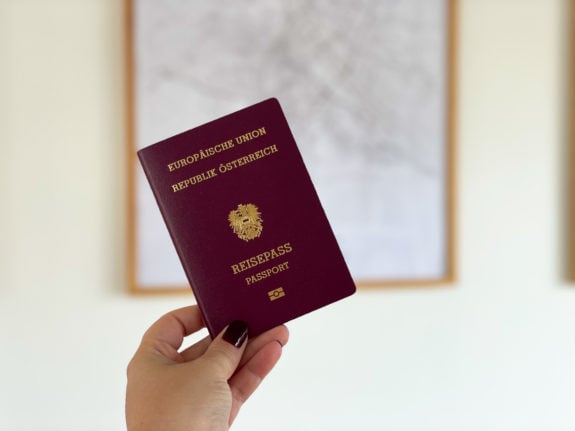Some 11,033 people took up Austrian citizenship in the first three quarters of this year – according to Statistics Austria.
That’s a very slight decline of 1.1 percent compared to the same period in 2022.
But the overall numbers hide a few interesting trends. First, the number of people becoming Austrian citizens who reside abroad is down.
In the first three quarters of 2023, 2,614 people living outside Austria became Austrian. The overwhelming majority of these people – 2,566 in all – claimed their Austrian passports through descent from Nazi victims, with the rest applying through regular descent from an Austrian national.
So far this year, the vast majority of those who claimed Austrian citizenship through descent from Nazi victims live abroad – including 1,200 in Israel, 600 in the US, and 441 in the UK. Just eleven people who claimed citizenship this way in 2023 so far were actually resident in Austria when they did so.
INTERVIEW: By becoming Austrian, I’ve reclaimed my family’s terrible story
The number of people claiming citizenship this way is down over 15 percent compared to last year – driving the overall slight downward trend. The number of people naturalising after residence in Austria though – is up 3.5 percent.
About a quarter of these people were actually born in Austria. Statistics Austria recorded a roughly equal number of women and men naturalising and around 38 percent came from just four countries – Syria, Turkey, Bosnia & Herzegovina, and Afghanistan.
Regionally, Lower Austria, Upper Austria, Styria and Burgenland all saw increases in naturalisations of 20 percent or more compared to the same time last year.
Vorarlberg was up around 15 percent and Tyrol up only about two percent. Salzburg and Vienna saw five and 13 percent declines, respectively. The largest drop was seen in Carinthia – where naturalisations in the first three quarters of this year fell almost 25 percent.



 Please whitelist us to continue reading.
Please whitelist us to continue reading.
Member comments